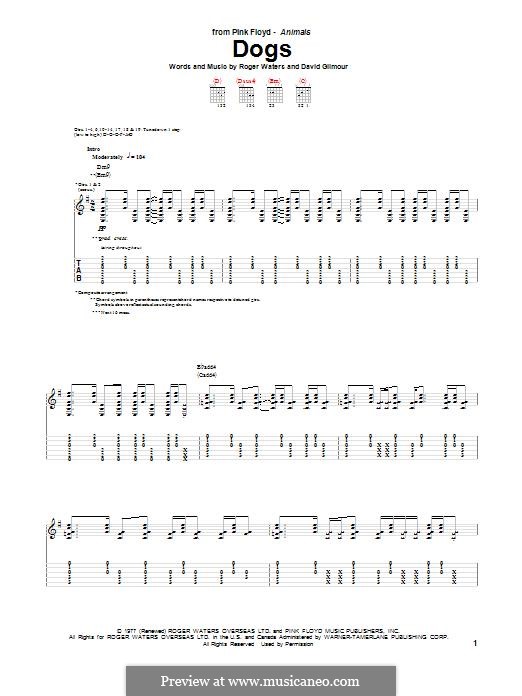

Although the musical themes and form of “You Gotta Be Crazy” stayed almost the same when it became “Dogs,” the impression that the two versions make is completely different. During the two preceding years, Pink Floyd performed an early version of the song, which was then titled “You Gotta Be Crazy,” in numerous concerts. This is not how “Dogs” sounded before the band recorded it as part of the 1977 LP Animals. Gilmour’s guitar navigates the energy throughout the song toward this tonal swirl, offering an appropriate climax to one of the highlights of Pink Floyd’s music, achievable only after having taken the listener for such a tumultuous ride. Indeed, this passage is a definitive moment in the song’s build-up.

This passage was so singular that when forced to record the solo again after it was accidently erased, Gilmour chose to reproduce the very same phrase rather than improvise a new one ( Gilmour 2003 MacDonald 1996, 204). In three-part harmony, the guitars weep through some of the harshest measures in Gilmour’s corpus: a sequence of augmented triads falls from the topmost register of the instrument to the bottom as the tonal fog of a whole-tone scale immerses everything. One melodic line is no longer sufficient for the vigor of this third and last guitar solo in the song. In the climactic moment of Pink Floyd’s song “Dogs,” the wailing electric guitar of David Gilmour suddenly splits into three distinct voices. Copyright © 2015 Society for Music Theory


 0 kommentar(er)
0 kommentar(er)
